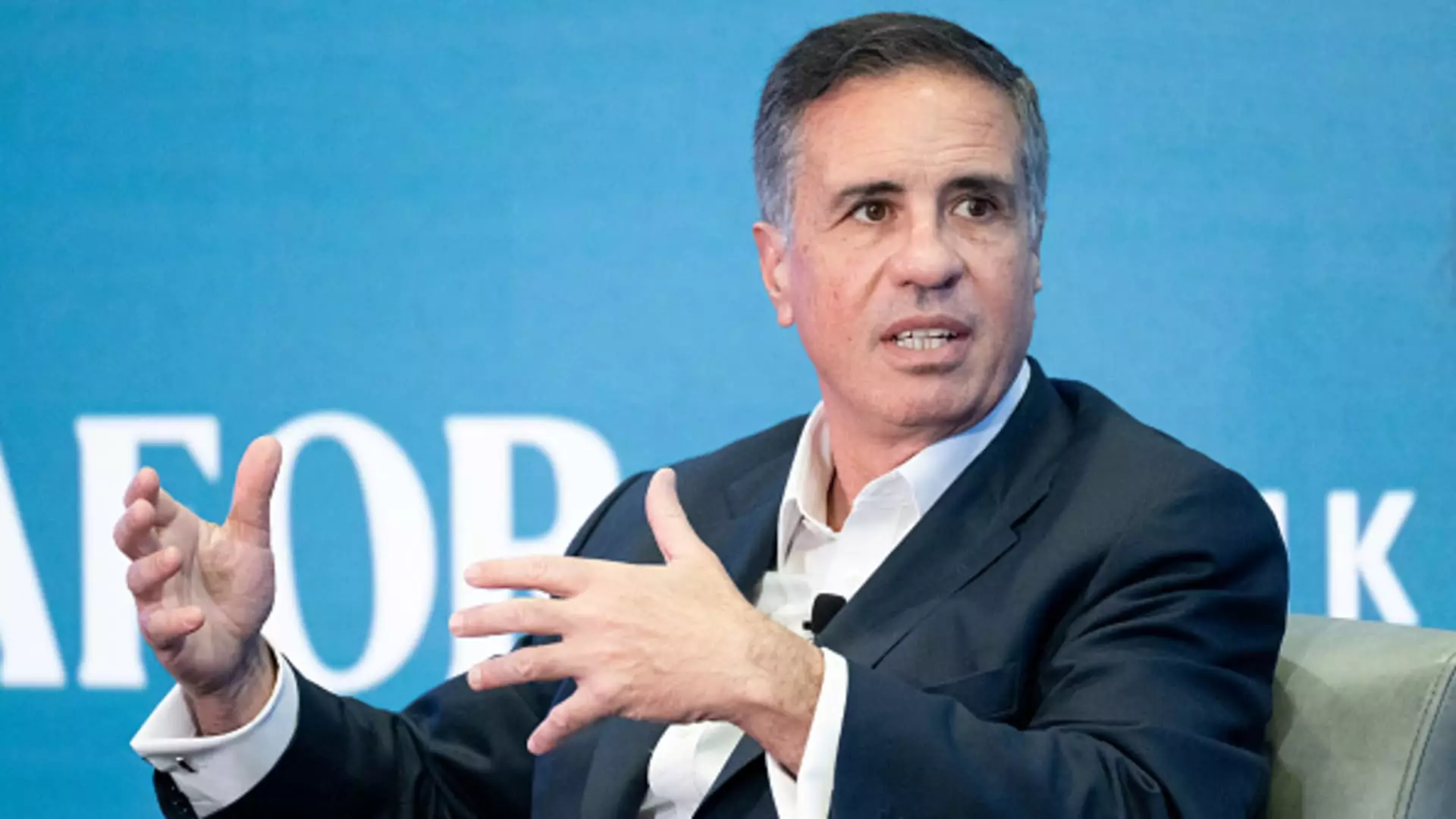JPMorgan Chase faced a significant setback on Tuesday as its shares plummeted by 5% following statements made by the bank’s president regarding the unrealistic expectations for net interest income (NII) and expenses in 2025. The bank’s aim to reach a target NII of approximately $91.5 billion in 2024 seems attainable, but the projected figure of $90 billion for the following year was deemed “not very reasonable” by JPMorgan President Daniel Pinto. Pinto attributed this skepticism to potential interest rate cuts by the Federal Reserve, which would impact the bank’s ability to generate income through lending and investments. In light of these uncertainties, investors reacted negatively to the news, causing shares to decline by over 7%, marking the sharpest drop since June 2020.
NII serves as a crucial revenue source for banks, representing the difference between the interest earned from loans and investments and the cost of deposits. When interest rates decrease, the profitability of new assets declines, as loans and bonds yield lower returns. While falling rates may discourage customers from shifting funds to high-yielding accounts, they also pose challenges for banks with a significant interest rate sensitivity, like JPMorgan. Pinto acknowledged the complexities of navigating this landscape, stating, “As rates go lower, you have less pressure on repricing of deposits, but as you know, we are quite asset sensitive.”
In addition to NII worries, investors were also apprehensive about the bank’s projected expenses for the upcoming year. Analyst estimates of around $94 billion were viewed as overly optimistic by Pinto, given factors such as persistent inflation and new investments being made by the firm. Pinto cautioned that expenses might exceed current expectations due to these variables, further fueling concerns among shareholders and contributing to the decline in stock value.
Despite the challenges on the NII and expense fronts, JPMorgan expressed confidence in its trading and investment banking divisions. The bank anticipated flat to slightly higher third-quarter revenue from trading activities, while investment banking fees were projected to see a significant 15% increase. This optimism contrasted with a trading revenue decline projection of 10% announced by Goldman Sachs, underscoring the variability in performance across different financial institutions amidst a volatile market environment.
The altered projections and cautious statements from JPMorgan’s leadership have had a profound impact on investor confidence in the bank’s future performance. While the institution has historically been a strong player in the financial sector, the uncertainties surrounding NII, expenses, and broader economic conditions have generated skepticism among shareholders. The market’s reaction to these developments underscores the importance of transparent communication and proactive risk management in maintaining investor trust and sustaining long-term growth in the banking industry.

